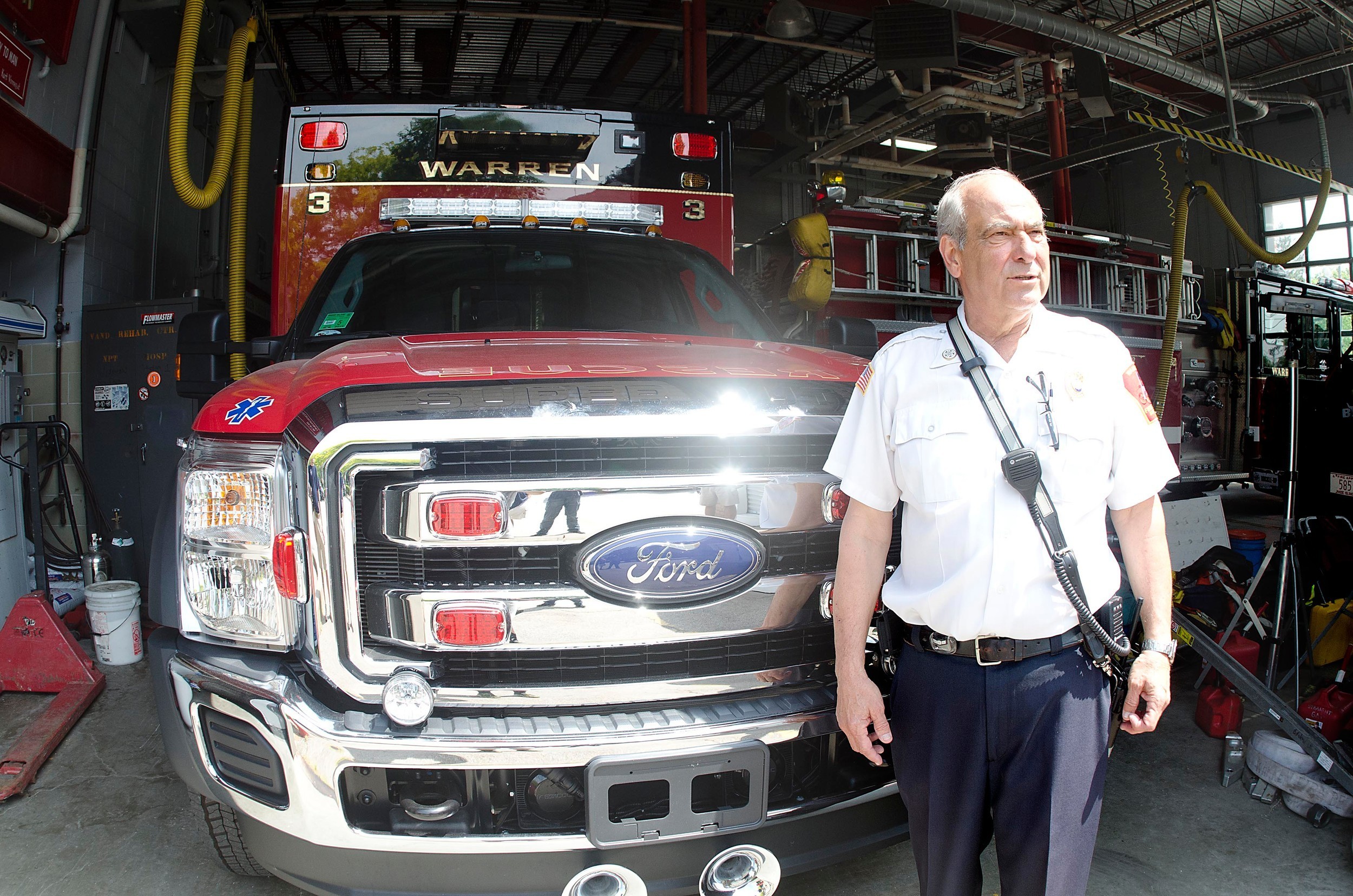Warren Rescue will prolong on-site cardiac care
Fire Chief Al Galinelli questioned new 30-minute rule, but said he is happy to do it if it will save lives
Warren rescue crews will now spend half an hour administering life-saving CPR to cardiac arrest patients before taking them to the hospital, a move that state health officials believe could save …
This item is available in full to subscribers.
Please log in to continue |
Register to post eventsIf you'd like to post an event to our calendar, you can create a free account by clicking here. Note that free accounts do not have access to our subscriber-only content. |
Day pass subscribers
Are you a day pass subscriber who needs to log in? Click here to continue.
Warren Rescue will prolong on-site cardiac care
Fire Chief Al Galinelli questioned new 30-minute rule, but said he is happy to do it if it will save lives
Warren rescue crews will now spend half an hour administering life-saving CPR to cardiac arrest patients before taking them to the hospital, a move that state health officials believe could save lives.
The new cardiac protocol became mandatory state-wide at the beginning of February, put in place by the state Department of Health after consultation with doctors and hospitals and with review by boards including the DOH’s Ambulance Advisory Board. Fire Chief Al Galinelli was a member of that board and while he said he questioned the new 30-minute rule, he and his crews will happily implement it now that it is required. He hopes it makes a positive impact on the lives of patients.
“I had my reservations,” said Chief Galinelli, who said that before the policy change his crews generally spent about 20 minutes with patients before transporting them.
“If I have intubation, with good CPR, I have my lines in, I’ve administered my drugs, why stay there another 10 minutes? But that’s just me; I’m not a doctor. I’m not opposed to my personnel doing 30 minutes; I understand it.”
Chief Galinelli spent 15 years on the advisory board but has since left to allow “new ideas” to be heard. He said the Department of Health’s reasoning behind the policy is that every minute spent administering CPR is crucial, and pausing to transport a patient out of the house and into a waiting ambulance takes away critical live-saving time. With the amount of resources available to EMTs and paramedics, first responders have all the tools they need to administer proper care and revive a patient if possible; that is, there is no perceived benefit to the patient by rushing him or her to the hospital as early as possible.
Chief Galinelli said he agrees with that philosophy, and only questions the length of time. The 30-minute standard, he believes, could be longer than necessary.
“There are others out there who dispute me, but I look at a different way,” he said. “I think eventually down the road, the EMS field will look at this and say, ‘Instead of 30 minutes, maybe let’s try 20.”
2017 has already been a busy year for CPR calls here. While Warren crews only responded to 10 cardiac calls all last year, they have had three cardiac arrest calls since the beginning of February. In all three cases, first responders spent 30 minutes administering CPR before taking the patient to the hospital. Unfortunately, all three ultimately succumbed.
Mutual aid increase?
Chief Galinelli predicted the new policy could place a larger burden on area towns’ services, leading to more mutual aid calls from one town to another. Mutual aid is a practice by which neighboring towns agree to send their rescue trucks across town lines when the other town’s crews are tied up.
He believes Warren crews could see more requests for aid from other towns, and also could need more help themselves.
“We’re in a better position now because we have three trucks,” he said. “But we’re probably going to see more” calls for help from Barrington, Bristol, Swansea and East Providence.
Get certified in CPR
While comprehensive medical care is one of the keys to saving the lives of cardiac patients, Chief Galinelli said the most important thing is early intervention. It takes rescue crews three to five minutes to respond to a call for help, and studies show that a patient who is not breathing can suffer irreversible brain damage in just a few minutes. That’s why he recommends that Warren residents become certified in CPR, so if they encounter someone having a medical emergency they can respond and keep the patient stable until trained first responders arrive.
“We wish everyone would get trained,” he said.
Chief Galinelli said he would love to hear from residents who want to be trained; if enough express interest (call 245-7600) he will put together courses run by one or more of the dozen or so members of his department trained in CPR instruction. The training takes eight hours to complete, and classes are general held at night.
“That way, if something happens in their family they know what to do,” he said.






